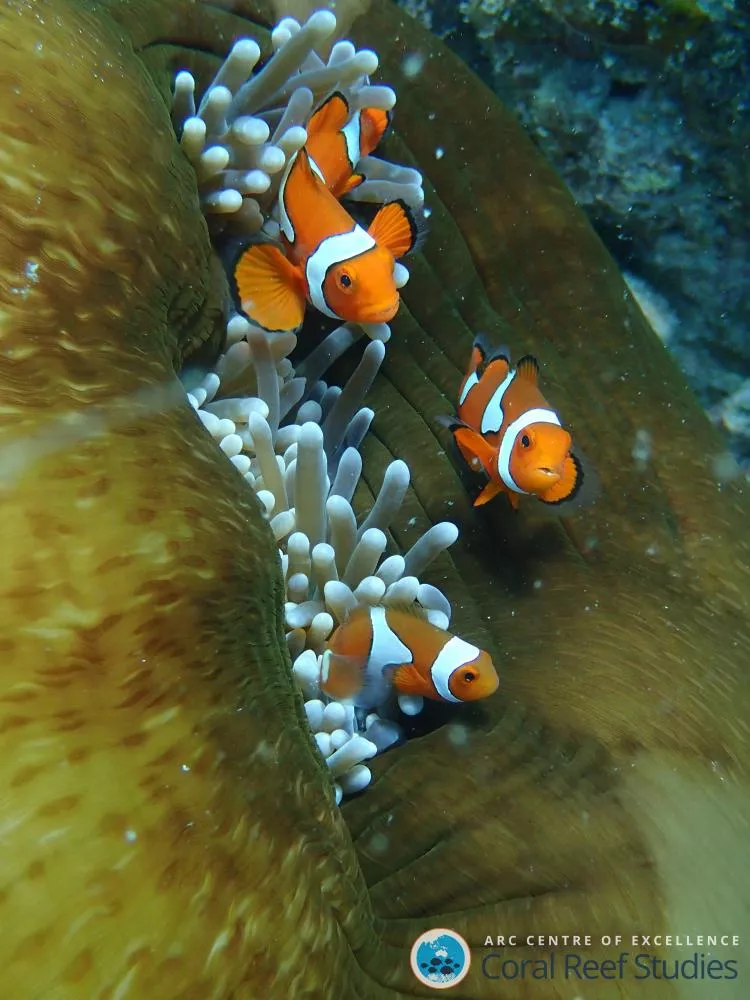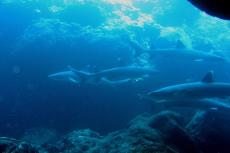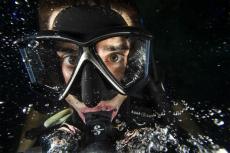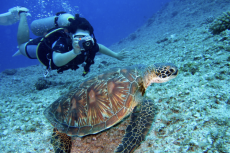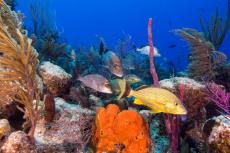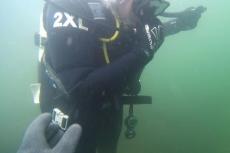Baby reef fishes take the gold
Baby reef fishes can swim much faster than other non-reef baby fishes.
A study has shown that baby reef fishes clock in at 15 to 40 body lengths per second, making them one of the fastest youngsters around.
In contrast, baby herring swim up to two body lengths per second, while the fastest human (Olympic gold medallist Michael Phelps) manages just 1.4 body lengths per second.
So how did those tiny baby reef fishes get to be so fast so early in their lives?
"We found the swimming performance in baby fishes relates to whether they ultimately associate with a reef or not," said co-author Dr Peter Cowman, from ARC Centre of Excellence for Coral Reef Studies at James Cook University (Coral CoE at JCU) and Senior Curator of Biosystematics from Queensland Museum's Project DIG.
Baby reef fishes have developed a higher swimming capacity so they can navigate the open ocean and ocean currents, and this comes into very handy when they search for a new reef to call home.
This finding was made after studying more than 200 marine fish species across 150 million years of shared ancestry that the researchers discovered that the baby reef fishes developed stronger muscles and swam faster than non-reef baby fishes that live their entire lives in the open ocean.
Co-author Associate Professor Jodie Rummer, also from Coral CoE and the College of Science and Engineering at JCU reiterated that the baby reef fishes were not passive particles floating around in the ocean: “They are finely tuned athletes.”


